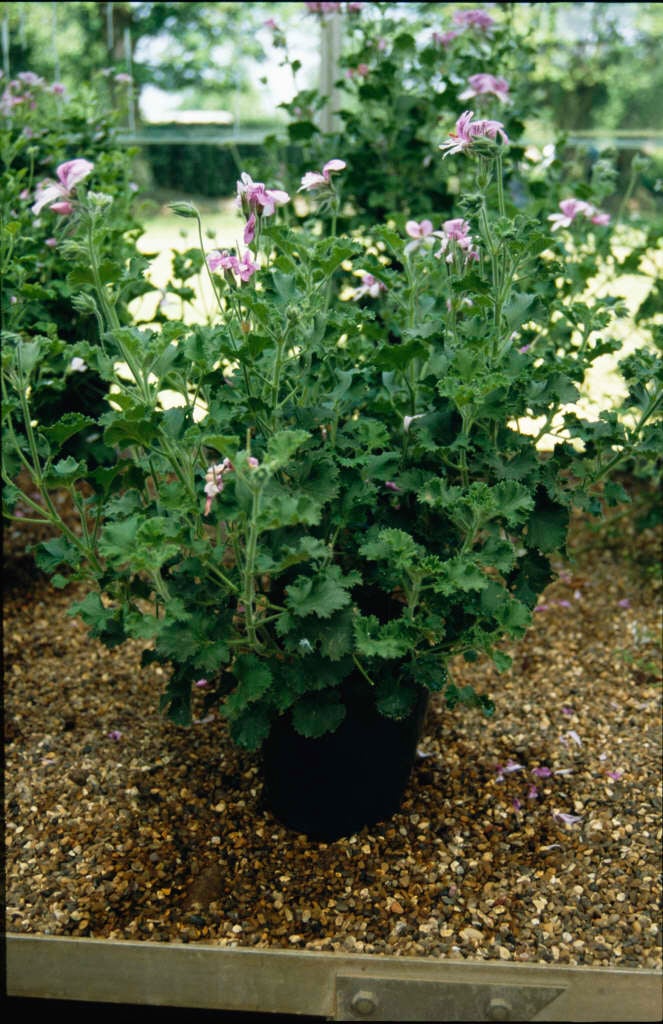Size
Ultimate height
0.1–0.5 metresTime to ultimate height
2–5 yearsUltimate spread
0.1–0.5 metresGrowing conditions
Moisture
Well–drainedpH
Alkaline, NeutralColour & scent
| Stem | Flower | Foliage | Fruit | |
| Spring | Green | |||
|---|---|---|---|---|
| Summer | Pink | Green | ||
| Autumn | Green | |||
| Winter | Green |
Position
- Full sun
Aspect
East–facing or South–facing or West–facing
Exposure
Sheltered Hardiness
H1CBotanical details
- Family
- Geraniaceae
- Native to GB / Ireland
- No
- Foliage
- Evergreen
- Habit
- Bushy
- Genus
Pelargonium can be perennials, sub-shrubs or shrubs, sometimes succulent and mostly evergreen, with palmately lobed or pinnately divided leaves and clusters of slightly irregular, 5-petalled flowers
- Name status
Accepted
- Horticultural Group
- Scented-leaved pelargoniums are evergreen shrubs or perennials with strongly aromatic foliage and small, single flowers in shades of pink, purple or white
How to grow
Cultivation
Under glass, grow in a peat-free potting compost in full light with shade from hot sun with good ventilation. When in growth water moderately and apply a balanced liquid fertiliser in spring and early summer. A high potash fertiliser should be used when in flower. Water sparingly in winter. Can be grown outside in frost-free areas in a fertile soil. See Pelargonium cultivation for further advice
Propagation
Propagate by softwood cuttings in spring, late summer or early autumn
Suggested planting locations and garden types
- City and courtyard gardens
- Coastal
- Cottage and informal garden
- Patio and container plants
- Flower borders and beds
Pruning
Deadhead regularly
Pests
Susceptible to vine weevil, caterpillars and thrips
Diseases
May be subject to grey moulds when grown under glass
Love gardening
Sign up to receive regular gardening tips, inspiration, offers and more
View our Privacy Policy
Get involved
The Royal Horticultural Society is the UK’s leading gardening charity. We aim to enrich everyone’s life through plants, and make the UK a greener and more beautiful place.
